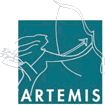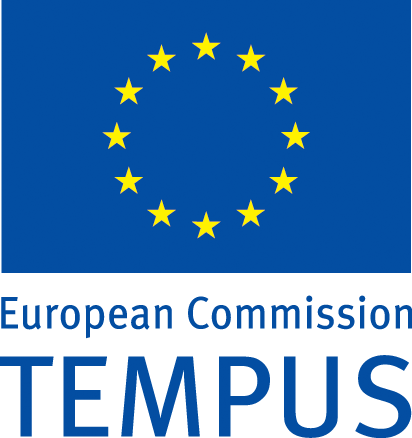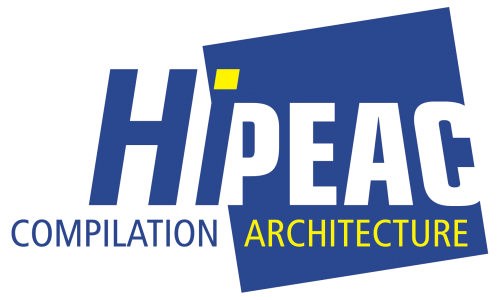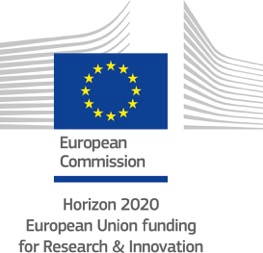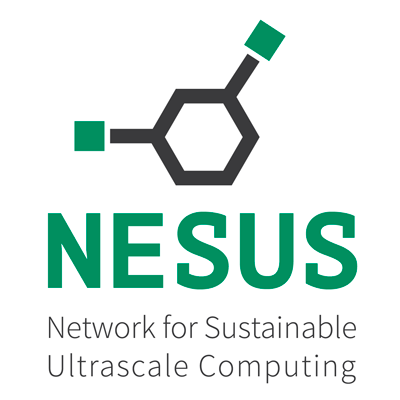International Projects 
SparCity: "An Optimization and Co-design Framework for Sparse Computation"
Research Team Member | SparCity
EU-Horizon2020JTI | EuroHPC-2019-1-RIA | 956213
Didem Unat (Koç University, Turkey)
6 partners from 5 countries
The SparCity project aims at creating a supercomputing framework that will provide efficient algorithms and coherent tools specifically designed for maximising the performance and energy efficiency of sparse computations on emerging HPC systems, while also opening up new usage areas for sparse computations in data analytics and deep learning. The framework enables comprehensive application characterization and modeling, performing synergistic node-level and system-level software optimizations. By creating a digital SuperTwin, the framework is also capable of evaluating existing hardware components and addressing what-if scenarios on emerging architectures and systems in a co-design perspective. To demonstrate the effectiveness, societal impact, and usability of the framework, the SparCity project will enhance the computing scale and energy efficiency of four challenging real-life applications that come from drastically different domains, namely, computational cardiology, social networks, bioinformatics and autonomous driving. By targeting this collection of challenging applications, SparCity will develop world-class, extreme scale and energy-efficient HPC technologies, and contribute to building a sustainable exascale ecosystem and increasing Europe’s competitiveness.
IntelCARM: "Boosting the roofline-based optimization guidance and performance modeling for modern CPU systems"
Principal Investigator (PI)
Intel Corporation | Intel Research Grant
As computing systems evolve towards complex multi-core designs with deep and diverse memory hierarchies, improving the performance and optimizing the execution of real-world applications become of fundamental importance. To abstract this complexity in an intuitive way, recent application analysis tools and frameworks rely on insightful modeling, e.g., Intel Advisor with Cache-aware Roofline Model. However, these approaches mainly consider the maximum architecture capabilities, which may limit their ability to accurately capture the behaviour of real-word applications. This is a gap that the work proposed in this project intends to close by focusing on research and development of existing and novel approaches for precise, insightful and application-driven performance modeling of computation and memory resources in the state-of-the-art Intel platforms. Besides significant scientific contributions, the outcomes of this project are also expected to provide Intel tools and hardware customers with direct and intuitive guidance based on investigated modeling and optimization methodologies.
EMC2: "Embedded Multi-core Systems for Mixed Criticality Applications in Dynamic and Changeable Real-Time Environments"
Researcher / Team Member | EMC2
ARTEMIS/0003/2013 | ARTEMIS Project
Ricardo Chaves (INESC-ID/IST)
EMC2 is an ARTEMIS Joint Undertaking project in the Innovation Pilot Programme "Computing platforms for embedded systems" (AIPP5). Embedded systems are the key innovation driver to improve almost all mechatronic products with cheaper and even new functionalities. They support today’s information society as inter-system communication enabler. A major industrial challenge arises from the need to face cost efficient integration of different applications with different levels of safety and security on a single computing platform in an open context. EMC2 finds solutions for dynamic adaptability in open systems, provides handling of mixed criticality applications under real-time conditions, scalability and utmost flexibility, full scale deployment and management of integrated tool chains, through the entire lifecycle. The objective of EMC2 is to establish Multi-Core technology in all relevant Embedded Systems domains. EMC2 is a project of 99 partners of embedded industry and research from 19 European countries with an effort of about 800 person years and a total budget of about 100 million Euro.
KNOWTS: "National Platform for Knowledge Triangle in Serbia"
Team Member | KNOWTS
EU Tempus 158881-TEMPUS-1-2009-1-RS-TEMPUS-JPHES | International Project
Ivan Milentijevic (Univeristy of Niš, Serbia)
The major goals of this European-funded project is to straighten the role of Universities in the Serbian
society by using University capacities in economy development, as well as to enhance the quality and
synergy between research, education and innovation in Serbia. The KNOWTS consortium was composed of
13 partners from 6 different countries, namely: Serbia, Portugal, Germany, Austria, Spain,
Macedonia and UK.
In the scope of the KNOWTS project, Aleksandar Ilic attended several meetings related to the
development of distributed network of Technology Transfer Centers in Serbia, in particular at the
University of Belgrade, Novi Sad, Kragujevac and Nis. He also participated in several management team
meetings and fifth bi-annual international ICT Forum. Aleksandar Ilic co-authored 3 papers at the
International Conference on Technology Transfer (ICTT'13), organized by KNOWTS consortium.
National Projects 
HiPerBio: "High Performance and Energy-efficient Processing of Bioinformatic Applications on Emergent Heterogeneous Systems"
Principal Investigator (PI) | HiPerBio
LISBOA-01-0145-FEDER-031901 (PTDC/CCICOM/31901/2017) | National Project (PT)
Massive publication of biological data has led to the tremendous increase in computational complexity of modern bioinformatics applications, thus urging the development of fast and accurate methods to find solutions in exponentially-growing search spaces. To tackle this challenge, this project aims at fully exploiting parallel processing opportunities of different bioinformatics applications (high order epistasis detection and phylogenetic reconstruction) for secure high performance and energy-efficient computing in emerging heterogeneous systems. For this purpose, in this project, a set of breakthrough modeling and innovative task scheduling methods are proposed to leverage the capabilities of computation, communication and memory resources by considering an extensive range of current and future heterogeneous systems: from embedded and general-purpose multi-core CPU systems, up to platforms with massively parallel accelerators, co-processors and reconfigurable devices (i.e., GPUs and FPGAs).
P2HCS: "Stretching the Limits of Parallel Processing on Heterogeneous Computing Systems"
Team Member / Post-Doc Researcher | P2HCS
FCT PTDC/EEI-ELC/3152/2012 | National Project (PT)
Leonel Sousa (INESC-ID/IST)
This project results from a research effort of SiPS group at INESC-ID. The main goal is to leverage
the utilization of shared resources in heterogeneous accelerator-enhanced systems by task scheduling.
Aleksandar Ilic was involved in all preparation stages of the proposal (e.g., writing, organization,
work-plan, methodology, budget), as well as in the project currently ongoing developments, namely:
i) tools for runtime monitoring on multicores based on low-level hardware facilities;
ii) assembly micro-benchmarks for accurate micro-architecture testing;
iii) insightful modeling of multicores for performance, power and energy-efficiency;
iv) optimization and characterization of real-world applications; and
v) scheduling strategies for efficient utilization of system and device resources.
THREadS: "Multitask System Framework with Transparent Hardware Reconfiguration"
Team Member / Researcher | THREadS
FCT PTDC/EEA-ELC/117329/2010 | National Project
Pedro Tomás (INESC-ID/IST)
This project results from a research effort of SiPS group at INESC-ID. The main goal is to develop a
framework for reconfigurable computing systems based on a set of predeveloped hardware and software
interface modules that eases the development of new hardware accelerators by hiding the complexity to
interface the remaining system (GPPU, memory).
Aleksandar Ilic contributed to the development of collaborative frameworks for accelerator-enhanced
systems. These frameworks integrate specific mechanisms for runtime performance modeling,
simultaneous execution control and automatic data access management. Several adaptive
load balancing algorithms are derived for efficient collaborative video encoding and when
transparently intercepting shared library calls.
International Networks of Excellence 
HiPEAC: "European Network of Excellence on High Performance and Embedded Architecture and Compilation"
Affiliate Member | HiPEAC
EU H2020-ICT (ref: 871174) | International Project
Koen De Bosschere (Universiteit Gent, Belgium)
The HiPEAC network of excellence mission is to steer and increase the European research in the area of
high-performance and embedded computing systems, and stimulate cooperation between academia and industry,
and computer architects and tool builders.
The network is structured along four programs. The membership program aims at growing the network by
creating a vibrant industrial membership, and reaching out to the companies and academics in the new
member states. The mobility program aims at bringing the partners and the members closer together
through exchanges and public networking events. The research coordination program aims at coordinating
the joint research between the HiPEAC members. The visibility program manages all the public activities
of the network.
Aleksandar Ilic attended the International Summer School on Advanced Computer Architecture and
Compilation for Embedded Systems (ACACES/HiPEAC 2008).
NESUS: "Network for Sustainable Ultrascale Computing"
Member | NESUS
EU COST (action: IC1305) | International Project
Jesus Carretero (Universidad de Madrid, Spain)
The goal of the NESUS Action is to establish an open European research network targeting sustainable solutions for ultrascale computing aiming at cross fertilization among HPC, large scale distributed systems, and big data management. The network will contribute to glue disparate researchers working across different areas and provide a meeting ground for researchers in these separate areas to exchange ideas, to identify synergies, and to pursue common activities in re- search topics such as sustainable software solutions (applications and system software stack), data management, energy efficiency, and resilience. Some of the most active research groups of the world in this area are members of this proposal (from 33 participating countries). This Action will increase the value of these groups at the European-level by reducing duplication of efforts and providing a more holistic view, it will promote the leadership of Europe, and it will increase their impact on science, economy, and society.
ComplexHPC: "Open Network for High-Performance Com- puting on Complex Environments"
Member | ComplexHPC
EU COST (action: IC0805) | International Project
Emmanuel Jeannot (INRIA Bordeaux, France)
This EU COST Action aimed at establishing a European research network focused on high performance
heterogeneous computing in order to address the whole range of challenges including models, algorithms,
programming tools and applications. The network of 26 participating countries contributed to information
exchange, identifying synergies and pursuing common research activities, therefore reinforcing the
strength of these groups and the leadership of Europe in this field.
Aleksandar Ilic participated in several ComplexHPC and joint IC0804/IC0805 committee and working group
meetings, namely: Lisbon (2009), Genoa, Italy (2012) and La Laguna, Spain (2013).
He also participated in the 3rd Workshop of Open Network for High-Performance Computing on
Complex Environments (COST IC0805) in Genoa, Italy.
Latest Events
Copyright © 2008–2014, Aleksandar Ilic [sips.inesc-id.pt/~ilic]





